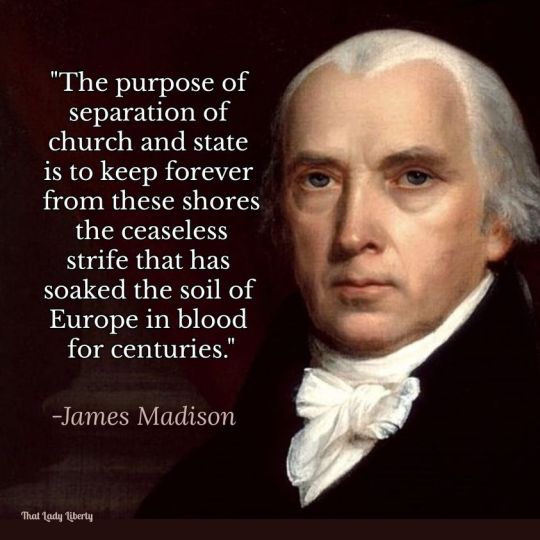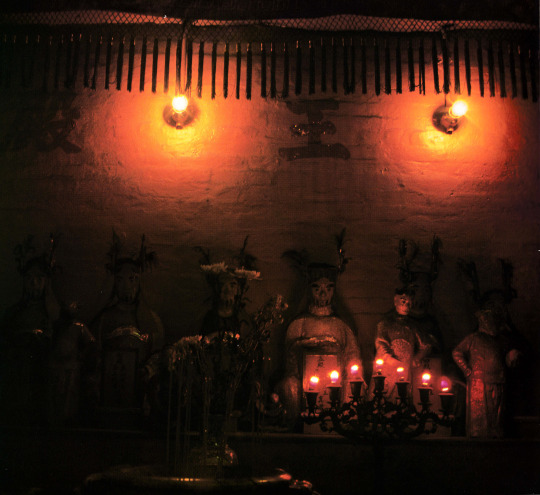#religion
Text

#atheism#christianity#judaism#islam#catholicism#mormonism#baptist#jehovah witness#scientology#religion
156 notes
·
View notes
Text



Marlborough Savers
#thrifting#shiftythrifting#religion#decor#dragons#odie#terlet odie was 5.50 lmao#that's savers for you
114 notes
·
View notes
Text
#johnny cash#calvin and hobbes#Cuba#weedporn#sebaciel#dino#steroline#the devil wears prada#religion#lesbian gif#comedian#Tntduo
131 notes
·
View notes
Text
Jesus was really right when he said the poor will always be with us. A lot of christians have struggled with Matthew 26:11, and it has caused a lot of people to subconsciously justify a de-prioritizing of the poor; we can bedeck our churches in opulence while people starve. We can make priorities of everything that makes our lives easier, and leave the hard work of caring for the poor for later, for our "thoughts and prayers." The poor will always be with us, so they can wait while we attend to our internal hungers.
I think what Jesus meant is that human greed will corrupt every system, which will always result in poor or disenfranchised people. We've tried a bunch of different socio-economic structures since then, and not one of them has worked to uplift all people. The eternal struggle against evil isn't about fighting off intangible demons, it's about fighting off the evil in our own hearts. We are never going to construct a "perfect system" that eliminates poverty automatically because someone will always try to take advantage of it. Instead, we must work every day, even when things are good and people are taken care of, to make sure that we see each other as deserving of dignity. We are never going to be able to legislate, dictate, or delegate our way into perspective. We have to work towards it, consciously, to make sure those around us are cared for. Vanity of vanities, a generation goes and a generation comes, but the poor remain forever.
The poor will always be with us because someone is always going to try and profit by depriving others. It is our mission and responsibility to improve as much of it as we can.
#the poor will always be with you#Ecclesiastes mention#matthew 26#theology#godblr#religion#liberation theology#autumn preaches#christianity#gospel of matthew
50 notes
·
View notes
Text

Saint George by Gandolfino d'Asti
#gandolfino d'asti#art#saint george#st george#renaissance#saints#religion#religious art#christianity#christian#europe#european#sword
43 notes
·
View notes
Text

#seventhdayadventist#jesus christ#bible verse#christianity#christians#god#religion#scripture#biblical#god's love#faith in the lord#faithinchrist#keep the faith#faith in jesus#faith in god#faith#christian faith#bibleverse#bible reading#the bible#biblestudy#bible scripture#bible quote#bible#bible study#christian bible#holy bible#10 commandments#god's word#word of god
31 notes
·
View notes
Text
'gender transition won't make you happy, only Jesus will' is not only an extremely annoying thing to say but i think probably a violation of James 2.16

30 notes
·
View notes
Text

The piety of the Hong Kong Chinese is illustrated by the richly decorated temples such as this one in Kowloon (below) and also in the intimate and well-concealed shrines (above).

From 'Eternal Hong Kong'. Scan
33 notes
·
View notes
Text
The Sultan, they said, was a good man. Soft, quickly moved to tears. Out of compassion, he bought the freedom of a Christian woman's stolen daughter. Even Walther von der Vogelweide, the minnesinger in distant Germany, praised the "mildness" of the powerful ruler in the Orient, whose name has a good reputation in the West: Saladin, a righteous man.
He was a man who always kept his word, even to his enemies.
He let his subjects drag him to court, because God's laws applied equally to everyone. Also for him, the ruler who managed to do what no one had ever managed before: to unite the Islamic world of the Middle East after centuries of discord and to wrest Jerusalem, the holy city of the Muslims, from the Christians in 1187.
His name translates as "righteousness of faith", and Saladin is indeed a devout Muslim. Nevertheless, after his conquest of the Holy Land, he allowed the Christians and Jews there to continue praying to their God. This is another reason why, more than half a millennium later, Western Enlightenment thinkers would make him the epitome of the tolerant ruler.
But this al-Malik an-Nasir Salah ad-Din Abu'l-Muzaffer Yusuf ibn Ayyub ibn Shadi, known as Saladin for short, also had other sides.
He could be treacherous, vile and mean. He did not shy away from murder. Nevertheless, this man fascinated his contemporaries. He became one of the most revered rulers of the Islamic world and the most important opponent of the Crusaders.
Saladin was born in 1138 in Tikrit (in present-day Iraq), the son of a Kurdish officer. During his political career, Saladin was the first to bring Egypt's army under his control.
Saladin, a Sunni, now founds two universities where theology is taught according to Sunni theology - a signal that he is on the side of the population. He also abolished a number of taxes that contradicted the Koran and the teachings of the Prophet.
Saladin's subsequent conquests shock the Christian world. By 1174, his power extended from North Africa to the southern tip of the Arabian Peninsula. In 1186, he ruled from the Nile to the Tigris.
At the height of his power, the Sultan even dreamed of taking the Holy War to Europe, conquering Rome - and putting the Pope in chains.
The Crusaders conquered Jerusalem in 1099 and held it until Saladin besieged it in 1187 and handed it over to the Ayyubid dynasty, a Muslim sultanate that ruled the Middle East at the beginning of the 12th century.
Saladin wanted to recapture the city, which had previously been ruled by Muslims.
For Muslims, Jerusalem is a place where important events in the life of Jesus and other important personalities took place. It is also the place where the Prophet Mohammed ascended to heaven according to the traditional interpretation of the Koran and other texts.
In Sunni Islam, Jerusalem is the third holiest city after Mecca and Medina. Muslims believe that Muhammad was brought to Jerusalem during his night journey (Isra and Mi'raj).
The name Jesus is mentioned twenty-five times in the Holy Qur'an, often in the form 'Isa ibn Maryam, which means "Jesus, son of Mary". In the Quran, he is given the unique title "Messiah" (al-masih in Arabic), which means "anointed one". He is considered one of many prophets from the lineage of the Prophet Ibrahim, or Abraham (peace be upon him). Many Muslim traditions regard it as an ideal example of spirituality. Unlike Christians, who generally believe in a triune God, Muslims believe that Jesus was a great prophet who was to lead mankind on the straight path of monotheism and obedience to God (Allah).
When Jerusalem also fell, two kings and an emperor set off for the Holy Land with their armies from 1189 onwards. One of the monarchs is King Richard I of England. Even before the armed pilgrimage, he had already earned himself an honourable name: "Lionheart."
Saladin lies in wait for the Christians in the forests of Arsuf near the Mediterranean coast. But King Richard of England had anticipated the attack; on 7 September 1191, his troops won a clear victory. Nevertheless, the Muslim army is still strong enough to block the road to Jerusalem.
Saladin's reconquest of Jerusalem in 1187 prompted Pope Gregory VIII to organize the Third Crusade. From 1189 to 1192, Saladin lost Acre and Jaffa and was defeated in the field at Arsūf. The Crusaders retreated to Europe without seizing Jerusalem, but Saladin's military reputation had been damaged. He died in 1193.
#learn about history#studyblr#religion#religious studies#crusaders#history#oriental#history of crusade#Saladin#king baldwin iv#kingdom of heaven#history of Jerusalem#Islam#christianity#history of Religion#teaching#books#booklr
26 notes
·
View notes
Text






#christianity#religion#catholiscism#girlblogger#gaslight gatekeep girlboss#gaslight gatekeep girlblog#gloomy coquette#gloomy dollette#morute#faunlet#girlblog#manic pixie dream girl#hell is a teenage girl#lana del ray aka lizzy grant#this is what makes us girls#girl blogger#im just a girl#this is a girlblog#girl interrupted
24 notes
·
View notes
Text

#atheism#christianity#judaism#islam#catholicism#mormonism#baptist#jehovah witness#scientology#religion
73 notes
·
View notes
Text

Spectacle of Human Madness, 1872. Auguste Glaize (French, 1807-1893).
#fine art#burned at the stake#captured#excecution#hanging#enslaved#abduction#gallows#martyrdom#religion#bare breasts
27 notes
·
View notes
Text
Reminder: Every time you pray, you disrupt and delay the enemy’s plans.
#prayer#prayers#jesus christ#dailyeffectiveprayer#praying#daily prayer#pray#daily effective prayer#daily effective prayers#bible#scripture#christian#christianity#religion#morning prayer#morning prayers#christian motivation#christian quotes#spiritual warfare#prayer request#christian blog#christian faith#christian living#holy spirit#holy ghost#church#trust god#god is good#god is bigger#amen
21 notes
·
View notes
Text
The [prosperity gospel] movement grew, partially because of the typically American interest in practical self-help techniques that will make you successful, and partially because of the universal human tendency to get tired of obediently praying for blessings from God and start trying to figure out how they could order Him to do His job instead.
-Ozy Brennan, On The Prosperity Gospel
21 notes
·
View notes
Text
Eliel Cruz for Teen Vogue:
When I was a teenager in the early aughts, conversion therapists reigned supreme in evangelical Christian spaces, spewing pseudo-scientific techniques as a supposed “remedy” for LGBTQ identities. Growing up in the Seventh-day Adventist church and school system, LGBTQ identities were vilified and demonized at the pulpit and in our classrooms. The answer to our sexualities, according to the church, was to deny ourselves love or a partner, stay celibate, or to work on “changing” our sexuality so that we were no longer queer. There were groups and conferences with self-proclaimed “ex-gay” speakers providing testimonies about how they “overcame” their sexuality and therapists eager to “help” others pursue the same path.
According to a Williams Institute report, 7% of LGB adults ages 18 to 59 in the United States have undergone conversion therapy. About 81% of those individuals were in “therapy” with religious leaders, which heightened suicidal thoughts and ideation in comparison to LGB people who have not gone through conversion “therapy” practices. Across the globe, these numbers fluctuate between 2% all the way up to 34% of LGBTQ+ people having undergone conversion practices.
By the mid-2010s, these groups and their influence began to dwindle as national organizations like Exodus International, one of the longest-running and largest ex-gay organizations, shuttered its doors after 37 years, admitting that not only did conversion or reparative therapy not work, it was harmful to the LGBTQ people subjected to it. Former Exodus International President Alan Chambers said: "I am sorry for the pain and hurt many of you have experienced. I am sorry that some of you spent years working through the shame and guilt you felt when your attractions didn't change,” admitting his own attractions to men had not gone away, despite being married to a woman and having children.
The closing of Exodus International signaled the end of a decades-long push for ex-gay therapy, or so it would seem. But in recent years, as legislation has passed across the country to ban conversion therapy for youth, a new push for so-called “change therapy” has re-emerged with the same flawed premise and tactics of the ex-gays of old. A group called Changed Movement, formed in response to legislation banning conversion therapy in California, is one such group using new language to promote the same-old conversion therapy.
Conversion or reparative therapy, loosely defined, is any attempt to influence and change someone’s sexual orientation or gender identity. Often, these counselors blame trauma or violence, family dynamics, or your upbringing as the root of the deviant sexuality or gender identity. Changed Movement shares stories of individuals blaming these roots as the cause of their sexuality or gender. This assertion is false and only serves to shame the individual, often for reasons beyond their control. Importantly, ex-gay groups like the Changed Movement do not seem to reckon with the fluidity of sexuality and gender and, as proponents of this ideology typically do, seemingly view things as either gay or straight, trans or cisgender.
[...]
In a report by the Trevor Project, researchers found at least 1,320 conversion therapy practitioners in almost all 50 states, including states with active conversion therapy bans for minors. Almost half of those counselors are unlicensed, and most are attached to some sort of religious ministry. While couching their language and pretending to be there to help LGBTQ people, the danger of these groups and practitioners cannot be understated.
Recently, an ex-gay group called Coming Out Ministries bought a building across from my alma mater, Andrews University, a Seventh-day Adventist University, intending to “work closely” with the university on LGBTQ issues “from a redemptive perspective.” Groups like Changed Movement and Coming Out Ministries see LGBTQ young people’s identities as “confusion” instead of who they are intrinsically. Their ideology stems from a theological understanding of sexuality that does not take into account science or the world as it exists around them. Anti-LGBTQ theology fuels conversion therapy, and it’s not only flawed but also inherently harmful and violent.
As a queer person of faith, I reject theology and religious practices that cause harm, as it is not from God. The history and devastating impacts of ex-gay practices are clear in the irreparable damage it has caused to large swathes of the LGBTQ community raised in religious settings.
Eliel Cruz writes in Teen Vogue the changing history of anti-LGBTQ+/anti-trans medical pseudoscience practice of conversion therapy.
#Conversion Therapy#Ex Gay#LGBTQ+#Transgender#Religion#Changed Movement#Exodus International#Coming Out Ministries
30 notes
·
View notes
